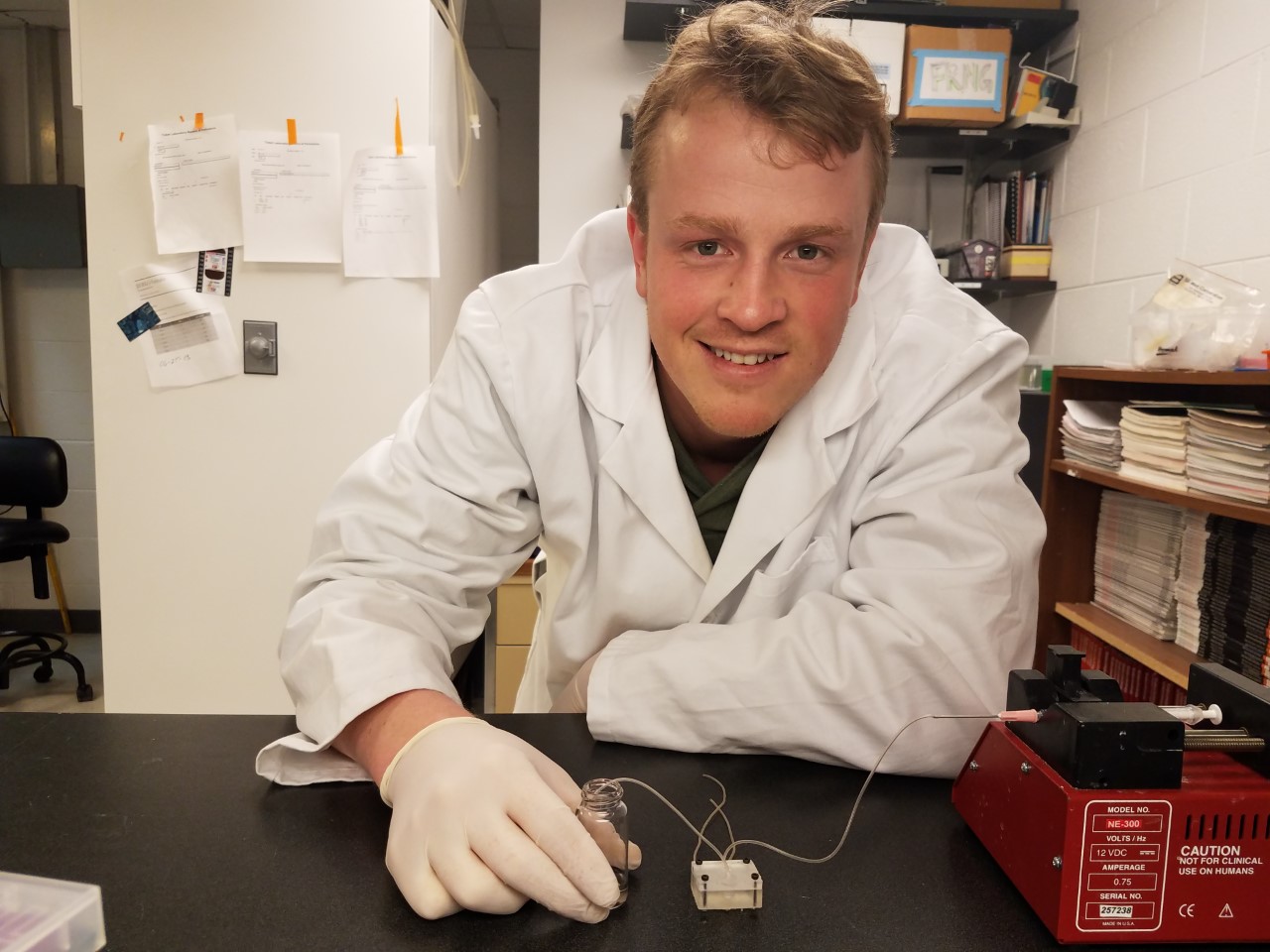“I would say one of the most important skills to learn in order to succeed in graduate school is self-directed learning,” explains Ian Mclean. As a biomedical engineer and researcher, Ian has had to gain expertise in many different STEM fields to be successful in his research that he hopes will “lead to more accurate drug-testing and personalized medicine for patients”. Ian states that if you’re a resourceful and independent individual, a career in scientific research may be a great fit for you! Read more of his interview to find out why…

- What shaped your interest in your present research agenda?
I was initially drawn to biomedical engineering because it combines the investigation of complex biological questions with the concrete fundamentals of engineering. I enjoy the interdisciplinary nature of this field. My current research project relies on a large variety of disciplines that spans from electrical engineering to genetics. As a result, I interact with many types of researchers that all approach problems from different perspectives, and this makes the research more interesting and exciting.
- What problem will your research help to solve?
I am currently developing a better laboratory model for studying the small intestine. An improved model could lead to more accurate drug-testing and personalized medicine for patients. The model could also improve our understanding of the microorganisms that inhabit the gut and the physiological and pathological functions of these microbes.
- What Science, Technology, Engineering, Mathematics do you most use?
In my current research, I primarily use CAD modeling, fluid dynamics (physics and calculus), and statistics. But the understanding of the overarching goals of my research, as well as interpreting experimental results, would be difficult without a grounding in biology and biochemistry. Being fluent in a wide range of fields has made understanding current and past research in my area much easier.
- Now that you’re in a STEM graduate program what do you wish you had asked or known more about before applying?
One consideration that I was not aware of as an undergraduate engineering student was the educational requirements required to become a professional researcher. As a loose rule, a Master’s of Science is required and a PHD is the norm in order to obtain a research position in engineering or the biological sciences. I spent three years in industry before enrolling in graduate school, and I found those years formative and valuable. However, if your heart is set on conducting research, graduate school is probably necessary to reach your career goals.
Stemcareer.com includes these interviews as part of the GAUSSI Career Planning program under the direction of Rich Feller PhD, Professor of Counseling and Career Development, Colorado State University.








Comments are closed.